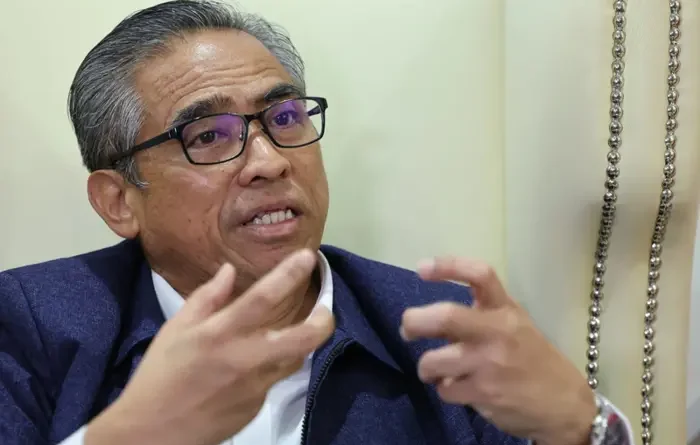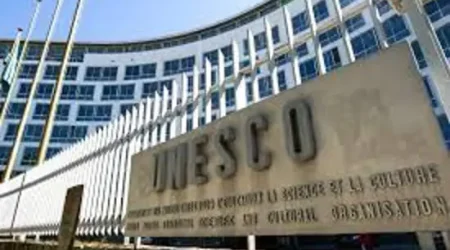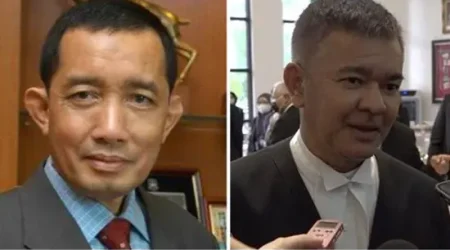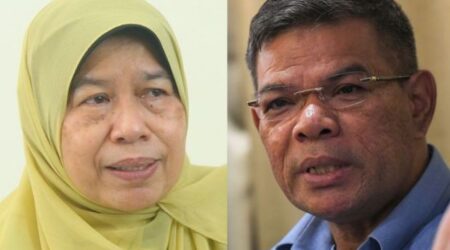Social comparison, greed among elements leading to corruption, says Chief Secretary to Govt
PUTRAJAYA: The habit of comparing oneself to others who appear more successful or possess more wealth, and prioritising greed disproportionate to financial capabilities, are among the elements that can prompt civil servants to commit immoral actions, such as corruption.
Chief Secretary to the Government Tan Sri Shamsul Azri Abu Bakar said that this phenomenon, however, is usually linked to the rising cost of living, which indirectly causes civil servants to seek shortcuts to fulfil their desires.
“Corruption happens because when we work in an organisation, we tend to compare ourselves. We see other people with fancy mobile phones and we want one too. This is how it starts – when our desires become too irresistible and exceed our income, corruption beckons.
“That is why, as the first measure to help civil servants, we are raising their salaries following the review of the public service remuneration system, After this, as the second measure, we will increase opportunities for career advancement. I have also discussed with the Public Service Department (PSD) to increase and broaden the promotion pathways for those who need it.”
Shamsul Azri said this during an exclusive interview with Bernama, marking the 100-day milestone of his appointment as the country’s 16th Chief Secretary to the Government, which falls on Nov 19.
Elaborating on the promotion pathways, Shamsul Azri said that the initiative would first focus on the Immigration Department before being extended to other public service sectors.
“We start with Immigration first, and I have held an engagement session with them. I will look into all the so-called departments with frequent complaints about corruption.
“…because I believe that all of these issues have solutions. Sometimes, it’s just that our engagement is lacking, but we need to reach out. When we meet with senior management, everything seems perfect, but only after meeting with the lower-level staff do we learn the real problems,” he said.
Meanwhile, Shamsul Azri said that the Malaysia Madani Public Service Training Module (MMPA), managed jointly by the Malaysian Nationhood Academy, the National Institute of Public Administration (Intan), and the Malaysian Anti-Corruption Commission (MACC), emphasises the six elements of the Malaysia Madani vision, namely Sustainability, Prosperity, Innovation, Respect, Trust, and Compassion, for all civil servants.
He said that he also believes the approach to tackling corruption and misconduct in the public service should be further strengthened through education, rather than solely relying on punishment.
The Chief Secretary said that the same approach is used in Singapore which made the country popular for its prevention efforts in educating civil servants to avoid corruption.
“This is what Singapore does. They educate their civil servants not to take bribes or get involved in corruption. So for me, education comes first and punishment later. Issues like this (corruption) sometimes make us think about why certain groups get involved in such matters. That’s why we need to educate,” he said.
Shamsul Azri also reiterated Malaysia’s target to rank among the top 25 in the Corruption Perceptions Index (CPI) by 2033.
“For that reason, I have chaired the Special Task Force for the CPI, and possibly next week, I will meet with the management of the International Institute for Management Development (IMD), one of the key parties involved with the CPI, to seek their cooperation on how to improve Malaysia’s standing in the CPI,” he said.
In the 2023 CPI assessment, Malaysia’s position improved to 57th, compared to 61st the previous year.
On Sept 26, Shamsul Azri was reported as saying that the CPI Special Task Force plays a role in analysing the findings of the CPI survey and proposing recommendations and strategies for institutional and legal reforms, including strengthening the system of checks and balances.
It was also reported that the task force will closely monitor and take appropriate follow-up actions through initiatives under the National Anti-Corruption Strategy (NACS) 2024-2028. – Bernama













Leave a Reply